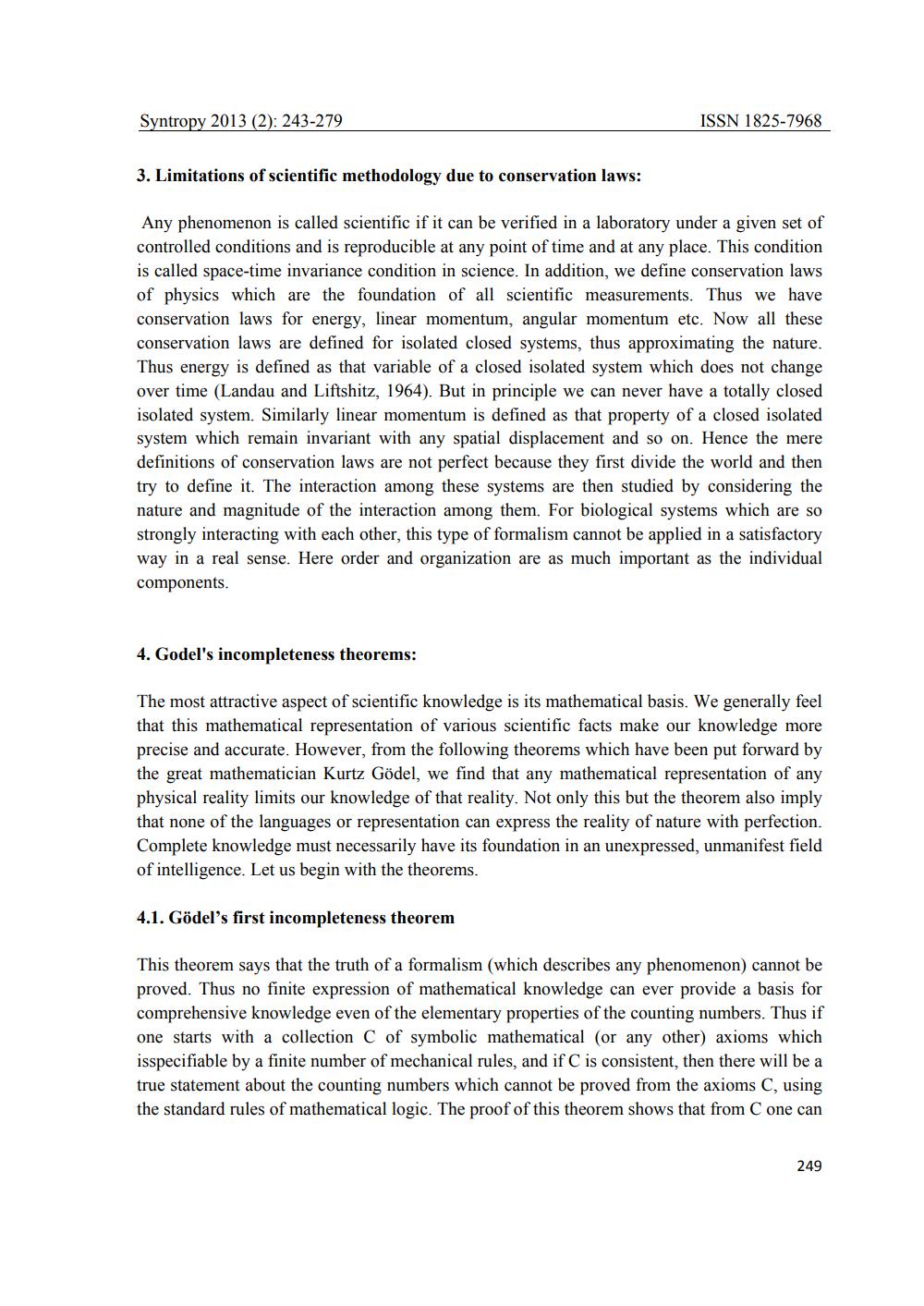________________
Syntropy 2013 (2): 243-279
ISSN 1825-7968
3. Limitations of scientific methodology due to conservation laws:
Any phenomenon is called scientific if it can be verified in a laboratory under a given set of controlled conditions and is reproducible at any point of time and at any place. This condition is called space-time invariance condition in science. In addition, we define conservation laws of physics which are the foundation of all scientific measurements. Thus we have conservation laws for energy, linear momentum, angular momentum etc. Now all these conservation laws are defined for isolated closed systems, thus approximating the nature. Thus energy is defined as that variable of a closed isolated system which does not change over time (Landau and Liftshitz, 1964). But in principle we can never have a totally closed isolated system. Similarly linear momentum is defined as that property of a closed isolated system which remain invariant with any spatial displacement and so on. Hence the mere definitions of conservation laws are not perfect because they first divide the world and then try to define it. The interaction among these systems are then studied by considering the nature and magnitude of the interaction among them. For biological systems which are so strongly interacting with each other, this type of formalism cannot be applied in a satisfactory way in a real sense. Here order and organization are as much important as the individual components.
4. Godel's incompleteness theorems:
The most attractive aspect of scientific knowledge is its mathematical basis. We generally feel that this mathematical representation of various scientific facts make our knowledge more precise and accurate. However, from the following theorems which have been put forward by the great mathematician Kurtz Gödel, we find that any mathematical representation of any physical reality limits our knowledge of that reality. Not only this but the theorem also imply that none of the languages or representation can express the reality of nature with perfection. Complete knowledge must necessarily have its foundation in an unexpressed, unmanifest field of intelligence. Let us begin with the theorems.
4.1. Gödel's first incompleteness theorem
This theorem says that the truth of a formalism (which describes any phenomenon) cannot be proved. Thus no finite expression of mathematical knowledge can ever provide a basis for comprehensive knowledge even of the elementary properties of the counting numbers. Thus if one starts with a collection C of symbolic mathematical (or any other) axioms which isspecifiable by a finite number of mechanical rules, and if C is consistent, then there will be a true statement about the counting numbers which cannot be proved from the axioms C, using the standard rules of mathematical logic. The proof of this theorem shows that from C one can
249




